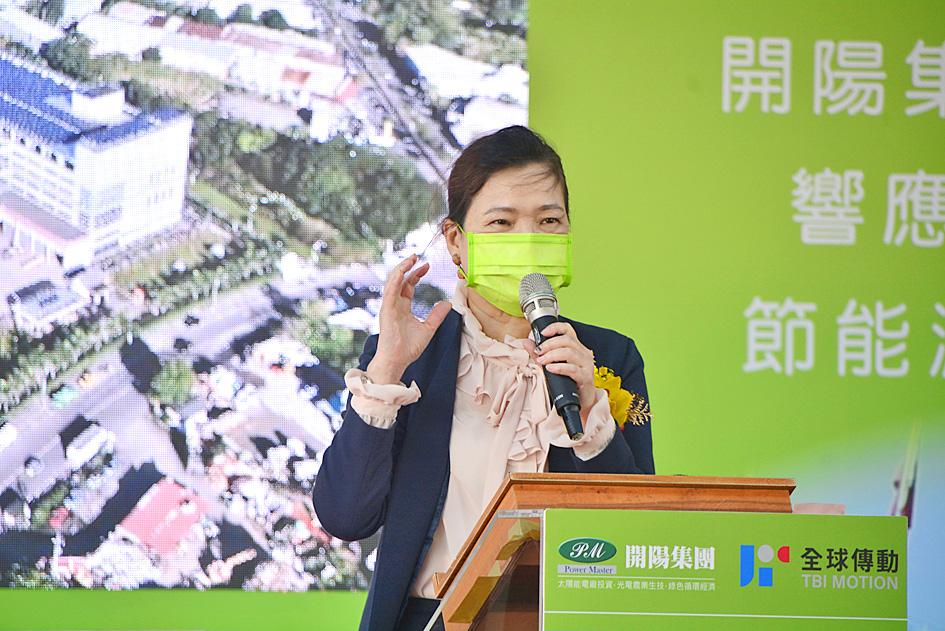CPC plan will not impact reefs: official
ALGAL REEFS:
Building an LNG terminal off Taoyuan is critical to ensuring a stable electricity supply, Wang Mei-hua said, amid concerns about the impact on the ecosystem
-
By Angelica Oung / reporter
CPC Corp, Taiwan’s third liquefied natural gas (LNG) terminal project in Taoyuan, would have “minimal impact” on algae reefs and endangered marine animals at the proposed construction site, Economy Minister Wang Mei-hua (王 美 花) said yesterday.
The terminal, to be built in the Guantang Industrial Park (觀 塘工業區) on the coast of Datan Borough (大潭) in the Guanyin District (觀音) of Taoyuan, is badly needed to maintain a stable power supply, Wang said.
Some environmentalists have argued that the terminal would damage seaweed reefs off Taoyuan.
Photo: CNA
Wang said the planned terminal’s footprint has been reduced to 10 percent of the original plan proposed under the previous Chinese Nationalist Party (KMT) government and avoids some delicate algae reefs.
“We did our best to preserve the algae reefs, including positioning the entrance terminal 1 km from the shore,” said Wang.
The rapid construction of the LNG terminal is crucial for a stable power supply, especially if the Guosheng nuclear power plant is shut down six months earlier than expected due to insufficient storage space for used fuel rods.
The nuclear power plant in the Wanli (萬里) district of New Taipei City has an operating license until the end of this year. According to the Atomic Energy Council, the pools used to store the used fuel rods are “inadequate” and the power The plant would be 80 percent full before operations cease in June.
Describing the early shutdown as something “cannot be helped,” Wang said the government is making up for the electricity shortage by switching efforts to switch to natural gas and renewable energy.
Wang spoke at the inauguration of a rooftop solar system in New Taipei City’s Shulin Industrial Park (樹林 產業 專區), the largest rooftop solar system in the greater Taipei area.
She praised the system as a “great example” of roof-top solar development, which can lower the temperatures in factories while providing energy.
“We are encouraging more industrial users to install rooftop solar panels in northern Taiwan,” said Wang, adding that the north is lagging behind the south when it comes to solar panels.
“Our economy is growing well and we need stable power supply growth to support it,” she said.
When asked about a water shortage, Wang said companies “should assume the worst.”
“We can probably expect the 7 to 11 percent reduction in industrial water usage to persist until the rainy season starts in May or June,” she said.
Comments are moderated. Keep comments relevant to the article. Annotations that contain abusive and obscene language, personal attacks of any kind or advertising will be removed and the user blocked. The final decision is at the discretion of the Taipei Times.



Comments are closed.